Internationalisation at School of Education
As a teacher, it is an important skill to look at the world with an open mind. International experiences are enriching and contribute to your personal development, independence, self-confidence, creativity, curiosity and flexibility. You learn to communicate with others in different languages and gain international expertise, by exchanging ideas on regional and global issues. You do not always have to travel far: internationalisation can take place 'abroad' as well as 'at home'. Saxion School of Education offers several opportunities. Read all about it on this page!
Internationalisation at home and abroad
In the pabo curriculum, the teacher training programme for primary school teachers, we offer several possibilities to learn about educational practices in other countries and gain teaching experience in an international context.
In your first year you will visit a city across the border, Münster or Cologne in Germany or Leuven in Belgium. These visits are organised in collaboration with the teacher training programmes of the universities in these cities.
In your second year you will use the knowledge and skills from your first year in a wider European context. Study trips are organised to Milan, Prague and Olomouc, Madrid and Copenhagen. During this trip you will visit one or more schools to compare educational systems (the Dutch system and the system of the hosting country). You will try out a self-designed learning activity in a classroom.
In your third year there are several options. If you choose for one of the international minors, Global Citizenship, you will visit Brussels, as the European capital and centre of European democratic values. In this minor you can also do a project abroad, in Surinam, the Philippines, South Africa or countries in Europe.
In the minor Innovative Educational Approaches an internship in a school in Milan, Olomouc or Kalmar is part of the programme.
Next to the minor programmes you can go on Erasmus exchange and study at a partner university abroad. There are many possibilities, our partners are listed below. We will support you in making your choice, help you creating a personal learning arrangement and tell you where you can apply for funding. Also doing an internship in South-Africa, the Philippines or Surinam is possible.
In your final year you will go on a study trip to the Dutch 'Randstad'. In this one-week excursion you will get to know different innovative didactical methods used by schools, organisations and museums. This trip aims to provide a broad overview of innovation in the education field. Besides this, you can organise your research project or internship abroad.
In the third or fourth year of your study you can choose for an international minor:
- 'Global Citizenship' (a joint programme with Health Care, Social Work and HRM).
- For exchange students
- For national students
- 'Innovative Educational Approaches' (a joint programme with universities in Czechia, Italy and Sweden), a video on the minor, including students’ experiences
- For exchange students
- For national students
In your third or final year you can also study abroad, and participate in the European Erasmus+ programme, at one of Saxion's Erasmus partners. Below you find a list of our partners universities, including the possibilities they offer. You can create a personal study arrangement, in consultation with the International Office of the School of Education.
In your second, third or final year you can participate in the Edukans World Teacher programme. Edukans is a programme for professional development of (studying) teachers and school leaders. You travel for 14 days to developing countries, such as Malawi, Ghana, Kenya, Uganda, Surinam or India. During the trip you will work with students and experienced teachers from the Netherlands to develop and improve education.
Another possibility is to do your internship in the third year at one of our global partners. This is the ‘World Desk'. The School of Education has World Desks in three continents:
- South America: Surinam – Paramaribo
- Africa: South Africa – Cape Town
- Asia: Philippines – Manilla
- North-America: United States – Phoenix, Arizona
Education and research projects of the School of Education
The School of Education leads or participates in various international (research) projects, together with our European and global partners.
Important themes include:
- Digitalisation of education
- Cross-border collaboration and regional development
- Educational innovation (didactical approaches and methods)
- Organisation of education: teacher development and team teaching (New Education Workforce)
International networks
To make international collaboration easier, we participate in following networks and projects:
Useful platforms and links
Saxion school of education World Desk Partners
World desks
- Cape Town, South Africa
- Laerskool Simon van der Stel
- Timour Hall Primary
- Westcott Primary
- Groote Schuur Primary
- Paul Greyling
- International school of Cape Town
- Fishoek Primary
Partners
Saxion School of Education has partnerships with universities around the world. Below you find these universities listed per country. You can read a brief description of what to expect, specific characteristics and the link to the website of the university. Please contact us if you are considering one of these opportunities.
This university has its own international class, with a fixed programme and offers a cultural programme for students.
Augustinum in Graz offers bachelor level educational programmes for teacher training for primary and secundary schools, special needs schools and specific programmes for 'Religionspädagogik', 'Inklusive Pädagogik' and 'Elementärpädagogik'.
The Pädagogische Hochschule Vorarlberg in Feldkirch offers bachelor and master’s degree programs leading to a teaching certificate for primary or secondary schools. Incoming students share classes with Austrian students and are free to choose classes from any course and semester. The language of instruction is German, with the exception of classes taught in the English Department. Courses are 'Teaching English to Speakers of Other Languages' as well as practice-oriented classes such as sports, music, arts and crafts, where teachers will give instructions in English. There is also the possibility to do an internship at the adjacent primary school.
Does the complexity of urban areas intrigue you? Are you moved by urban issues such as poverty, diversity and liveability? Are you interested in a crossover between social work, education and healthcare? Are you eager to develop your international competences and network, whilst working on real-life cases, that give you the opportunity to work on your creative and critical thinking skills? Then study Crossing Borders (30 ECTS) in Antwerp!
The KU-Leuven is the oldest Dutch-speaking university in the world and has made an impact on internationalisation in education. Even though the name says Leuven, there are different campuses in Belgium. On the website you can find a lot of information about this university (use the ‘search’ button and look for Education).
UCLL is a large (Dutch-speaking) university of applied sciences in Flanders, with eight campuses in six cities. We focus in Diepenbeek. UCLL is active in the areas of teacher education, management, technology, health and welfare and combines its educational mission with practice-oriented research and service. The college puts maximum effort into personalized support for its students.
Palacky university is one of the oldest universities in Czechia and offers a wide range of teacher training modules. This university is specialised in pedagogical subjects.
The university of Hradec Králové offers a number of opportunities for international students from around the world. You can apply for exchange studies and regular courses. By pursuing your studies at the University of Hradec Králové you will have the opportunity of becoming a part of their international student community.
UCC is one of Denmark’s main providers of teacher education, social education and postgraduate and supplementary diploma degrees within related fields. UCC takes part in international, professional and academic networks to enhance the quality of the study programmes, professional development activities and research.
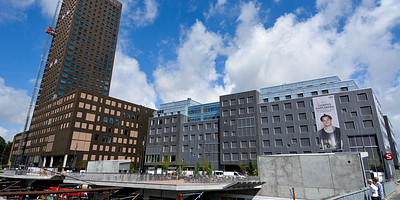
The University College of Northern Denmark (UCN) is a Danish Higher Educational Institution working in the fields of education, development, applied research and innovation. UCN is active in healthcare and wellness, social studies and education, technology and business, training and lifelong learning, in the northern part of Denmark. UCN is a dynamic and innovative training institution that focuses on high quality undergraduate education with an emphasis on professional skills, applied sciences and personal competences.
This is one of the largest universities in Finland. Their key interdisciplinary research areas are built around four global challenges: Ageing, lifestyles and health; Learning in a digitised society; Cultural encounters, mobilities and borders; and Environmental change and sufficiency of natural resources.
Jamk is a creative institute of higher education. Jamk has over 8 500 students and 900 employees. The themes that are important at Jamk are the renewal and digitalisation of learning, the development of new business, sales expertise and entrepreneurship and internationally acknowledged quality.
Universität Regensburg, founded in 1962 as the fourth Bavarian regional university, is a modern campus university at the southern edge of the Old Town of Regensburg. Originally designed as a regional university, Universität Regensburg has developed into a renowned international centre of teaching and research over the last decades. Among its attractive features are a broad spectrum of disciplines, a favourable student-teacher ratio and excellent infrastructure.
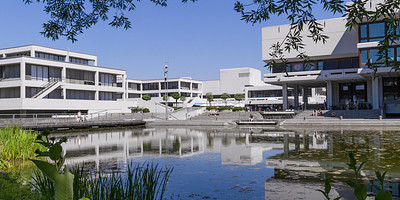
Within the so called ‘Euregio’, the border region of Overijssel and Münsterland, the APO and Westfälische Wilhems University (WWU) work together in different areas. APO students go to Germany to get acquainted with the German language and culture, we work together in projects (INTERREG) and we want to make it possible for students to be able to do an internship at the other side of the (Dutch or German) border. Where possible, we want to strengthen cooperation for students and employees because both WWU and Saxion have an (EU)regional task and function.
The University of Iceland is a progressive educational and scientific institution, renowned for its global research community. It is a state university, situated in the heart of Reykjavík, the capital of Iceland.
The University of Stavanger (UiS) has been welcoming students from all over the world since the university was established in 2005. International students form an integral part of the community on campus, and currently just over 10% of their students has an international background.
Comparative Educational Studies is a one semester exchange package that offers students of teacher education programmes a comparative view of educational systems and practical work in the fields of education, migration, music or drama. This programme is offered in the spring semester only.
The programme Outdoor Education is offered in the spring semester (January - June).There will be an emphasis on the acquisition of outdoor life skills, experiences and educational challenges in a professional and social environment through various activities. Students will gain knowledge, communication skills, and learn to provide guidance in outdoor education, which takes place in different natural environments, ranging from the coast to the mountains in the area.
The main campus in Bergen is called Kronstad. It houses about 6000 students and about 600 employees.
Campus Kronstad was built in 2014, in and around, six old railway halls. The buildings integrates the old houses in a new and modern award-winning campus. What used to be an engine workshop has been turned into the largest student cafe in Norway, with room for 780 people. The previous carpentry workshop is today a modern library. Campus Bergen has a bookshop and various outdoor and indoor sports facilities, a student pub with several groups you can join as well as 35 state-of-the art simulation laboratories (SimArena) for education and research within health sciences, sports and engineering.
Bergen is Norway’s second largest city. Surrounded by mountains and fjords, many students take advantage of the possibilities for hiking and overnight outdoor trips in the area. You can walk the seven mountains surrounding Bergen, together with thousands of locals in the annual seven mountain hike - or you can do it on your own. You can take an organised fjord tour or you can hop on a ferry.
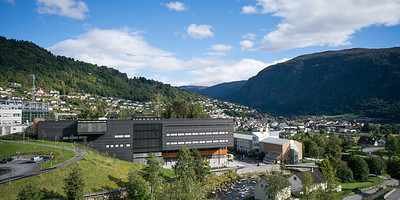
Campus Stord is located a few kilometres from the town Leirvik in a beautiful natural setting close to the mountains, fjords and the sea. It houses approximately 1500 students and about 150 employees. The campus is known for its creative study programs and outdoor pedagogics, learning how to use nature in teaching.
The campus has its own beach, park, student house, gym and soccer field. The student organisations on campus arrange activities for students throughout the year, from sailing and soccer games to quiz nights, theme parties and music festivals. The island of Stord also offers many opportunities to hiking, sailing, fishing, biking, skiing and much more. The scenery is beautiful and provides an excellent base for experiencing mountains, fjords, beaches and the sea.
All facilities at campus Stord are located within walking distance from the on-campus student accommodation. The buildings are a combination of modern and traditional Norwegian architecture and offer a friendly atmosphere with helpful students, lecturers and administrative staff.
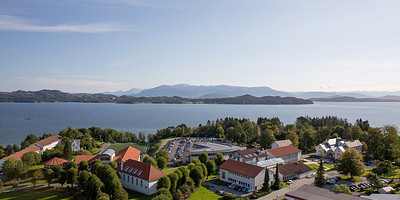
The University of the Minho is situated in the northern part of Portugal, close to the Spanish border. The university is specialised in ICT and education.
The International Semester is a combination of Curricular Units (CU), organised by School of Education teachers, in English, providing learning opportunities for international students who do not master the Portuguese language. This multidisciplinary program complements the existing offer in the School of Education degrees.
The School of Education offers a wide range of programmes and flexibility of choice - in the areas of general education, Language and Culture, History and Citizenship as the more specific areas of Arts, Social Communication, Sport, Community Development and Sociocultural Intervention, Education and ICT. Students can choose those that are best suited to their interests and motivations. It aims to promote meaningful learning — through methodologies and student centred teaching strategies.
The University of Alicante (UA) is a leading international University and has committed itself to supporting diverse groups by offering up to date educational programmes and personalised attention to students.
This very big university is situated outside the city of Barcelona and has its own campus and railway station. The university is almost a city in itself. The university is specialised in geography.
Located on the North-Western coast of Spain, the University of a Coruña is a public institution whose primary objective is the generation, management and dissemination of culture and scientific, technological and professional knowledge, through the development of research and teaching. The University of a Coruña offers Bachelor, Master and PhD studies, covering all fields of study within the framework of the European Higher Education Area. With exchange agreements with more than 40 countries, the University of a Coruña actively encourages internationalisation, receiving more than 1000 foreign students every year.
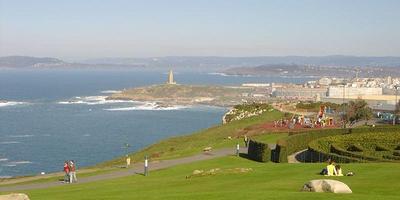
The University of Girona is a public institution and part of the Catalan public university system. It is devoted to excellence in teaching and research and involved in social development and progress through the creation, transmission, dissemination and criticism of science, technology, the humanities, the social and health sciences and the arts. It is an economic and cultural driver of the region with a universal mission and it is open to all the world’s traditions, advances and cultures.
More information:
- Would you like to come to the UdG?
- History
- All steps at glance
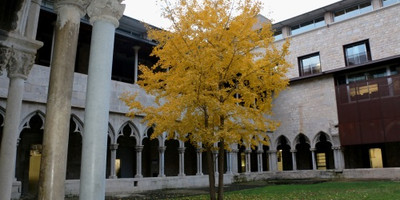
The University is spread over four sites. The main and newest campus is El Carmen, to the north of the city where the Faculties of Experimental Sciences, Law, Humanities, Education Sciences, Labour Sciences, the School of Nursing and the School of Social Work can be found as well as state of the art computing facilities and the central library. The University General Registry and administrative centre is located at a separate site in Cantero Cuadrado. UHU Modern Language Centre (Servicio de Lenguas Modernas) offers Spanish language courses all year round for free
Founded in 1968, Universidad Autónoma de Madrid (UAM) is a modern public institution committed to quality and service for its community.
Situated in the north of Madrid and well connected by public transportation, its designated Campus of International Excellence is organized into seven Faculties, a Higher Polytechnic School (EPS) and more than 30 research centers and institutes, some of them in collaboration with the Spanish National Research Council (CSIC). Moreover, UAM is one of the eight founding members of the European university alliance “CIVIS – a European civic University”.
UAM is a benchmark for the excellence of its academic teaching, research and job placement of its graduates, as it is recognized by prestigious global indicators such as the QS World University Ranking 2020, which places UAM as the first university in Madrid, third in Spain.
It currently offers 55 Undergraduate, 99 Master’s and 35 Doctoral degree programs. It has a total enrollment of over 30.000 students Characteristics: this University is a huge university situated in Canto Blanco. The school of Education does not offer many courses in English although we have visited this University every year because they promote Bi-lingual education in Spain.
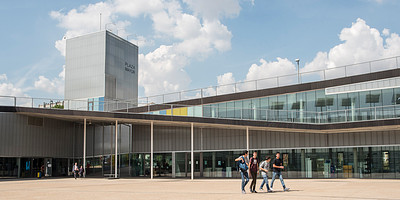
UCAM was among the first universities to adapt its programs to the European Quality System for Education, following the Bologna Process. UCAM’s teaching method is based on personalized attention with a reduced number of students per class and a personal tutor assigned to each student. UCAM also offers a modern system of distance teaching. UCAM is known as the University of Sports. It is the only European university with a professional basketball team in the first national league (ACB League Spain).
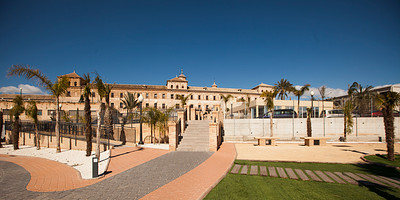
UCM develops a large number of activities of international cooperation, such as conventions, European programs, and projects that allow the exchange of students, teachers, researchers, and administration personnel with universities from around the world. This university actively maintains agreements of cooperation with more than 900 institutions in 77 countries.
Mostly for incoming students to Saxion, because this University doesn’t offer any English modules.
Linnaeusuniversitet has campuses in Kalmar and Växjö and is a very international university, with a high quality education and a focus on creativity and sustainability. Linneausuniversitet has a big pedagogy department and offers a wide choice of courses in an international semester.
The University of Teacher Education Zug (PH Zug) is situated at an idyllic place in the city of Zug, in the heart of Switzerland between Zurich and Luzern. With approximately 350 students, the university claims to be a transparent institution with a lively culture, personal atmosphere and future-oriented philosophy. PH Zug is also a young, modern and internationally oriented place that offers programmes in basic teacher training and carries out research and development, as well as other services. Life on campus is marked by short distances and unbureaucratic processes.
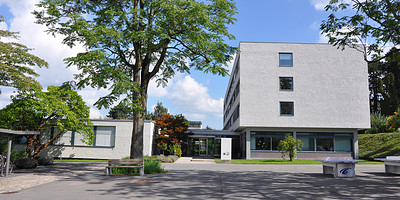
PH Luzern offers a special programme for its international students. These International Courses are held in English and are, in general, mandatory for all incoming students. These are for example Swiss History and Human Rights Education (more information is to be found on their website).
Students are allowed to add classes from the regular course programme to their schedules. Upon request, PH Luzern will organize school experiences in public or private schools.
Schwyz University of Teacher Education (PHSZ) is an institution for higher education where students can qualify to become preschool and primary school teachers. Their bachelor degree study programmes include teaching methods, classroom management, child development, and a broad range of school subjects. They focus on digital media to facilitate teaching and learning processes in education. PHSZ is located in the heart of Switzerland, in a state-of-the-art building surrounded by mountains and a stunning natural landscape.
The Uludag University is a very big university and is specialised in Music, Dance and other creative media.
Since the UK has left the European Union, study programmes are no longer possible with EU funding (Erasmus +). However APO is still collaborating with this university, as it also offers two Educational bachelor programmes. You can find information at the bottom of that page.
Contact us:
- Henny Oude Maatman, Coordinator International Office School of Education, +31 6 10940594
- Sander Kamphuis, World Desks and Erasmus Officer, +31 6 10940493
- Erica Staverman, Academy Officer, +31 6 82535782
- Gert Talens, International officer, +31 6 82315031
- Marleen van Grunsven, International Officer, +31 6 83494 758